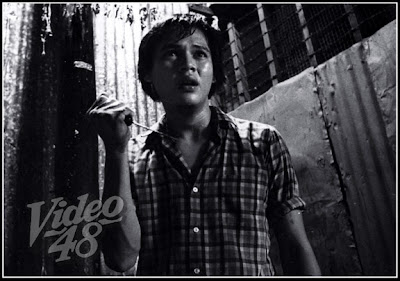In 1981, the twelve members of the MPP (Manunuri ng Pelikulang Pilipino) decided to honor the best films of 1970-79. As an initial step, each member listed down the ten films he considered as the top of the decade, using as basis the criteria formulated by the founding members in 1976. The individual lists were tallied, and the first ten films with the highest number of votes isolated. As a second step, and in order to insure the quality of the films that would be selected, a minimum of seven votes was required for any film to make it to the roll of honor, regardless of how many would get to the final list. A second ballot was taken, and seven films emerged as the critic’s choice for the Best Films of 1970-79.
1.Pagdating sa Dulo (1971)
A taxi dancer and taxi driver are fished out of poverty and anonymity by a commercial film director. The obsession with success forces them to affect images as movie stars, which suppress and eventually destroy them as persons and lovers.
2. Maynila sa mga Kuko ng Liwanag (1975)
Manila is portrayed as a web of exploitation and poverty that traps and devours a naïve probinsiyano, Julio Madiaga, who journeys into the city in search of a better life and a beloved who has become a Chinaman’s common-law wife. When they try to escape from the oppressive city, Julio and his beloved are destroyed.
3. Ganito Kami Noon… Paano Kayo Ngayon? (1976)
A picturesque character named Kulas wanders through the Philippine Revolution against Spain and the Philippine-American War, and wonders about the meaning of being Filipino in those critical decades of national self-definition.
4. Insiang (1976)
This crime of passion revolves around an innocent slum girl, Insiang, who, after being raped by her mother’s live-in lover, makes the lover fall in love with her, so that the mother would be forced to butcher the man in a gruesome fit of jealousy.
5. Itim (1976)
Using exquisite cinematography, this film depicts the mystery and horror of a dead woman’s possession of her younger sister, in order to reveal the circumstances of her death and avenge herself on her lover.
6. Nunal sa Tubig (1976)
Employing an experimental cinematic style, Bernal’s opus recreates the quality and pace of life of a village surrounded by sea, as it is caught in the eternal cycle of love and hate, of fertility and pollution, of birth and death.
7. Jaguar (1979)
A lowly security guard becomes a new personal bodyguard of his boss, and wants to think he is accepted by the latter as a friend. Later, however, he finds himself alone and abandoned, after he kills for his employer.
(Source: The Urian Anthology 1970-79)








No comments:
Post a Comment